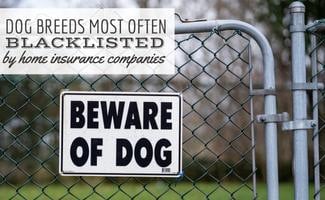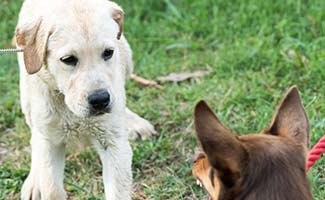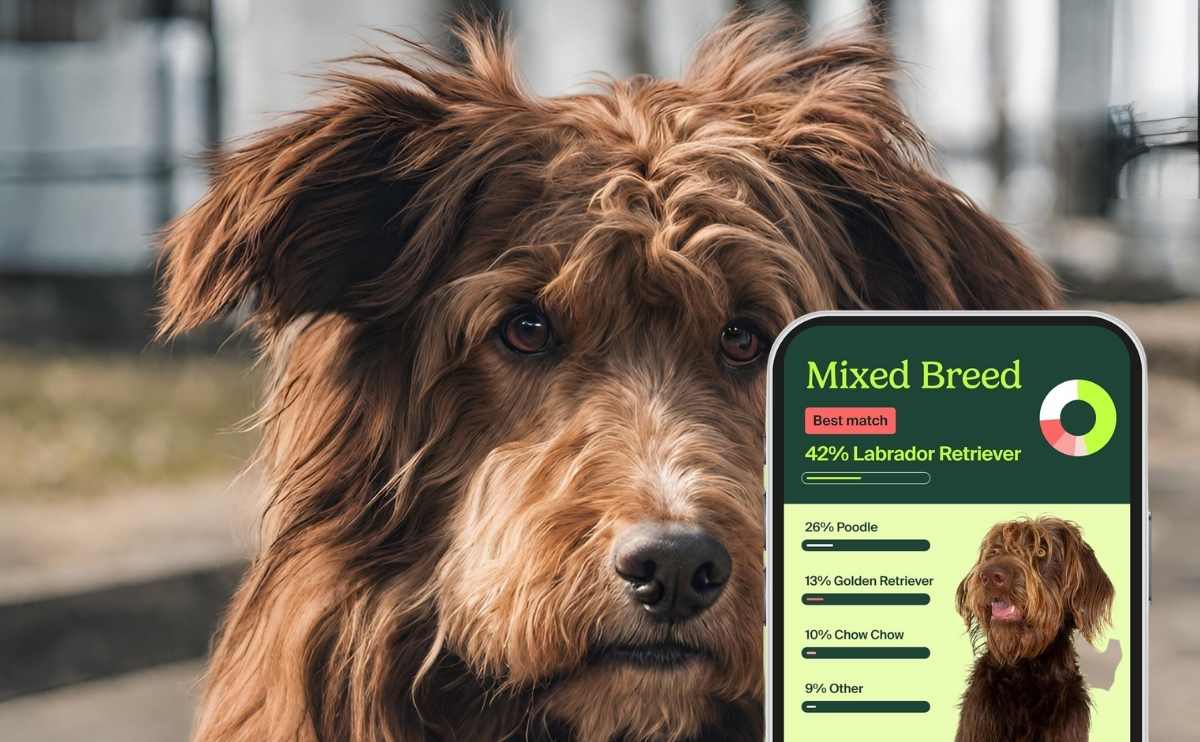When you purchase through links on our site, we may earn a commission. Here’s how it works.

The old adage that dogs are a man’s best friend doesn’t always apply to home insurance companies. The unfortunate reality is that there are certain dog breeds that many insurance companies blacklist, denying you coverage if you own that breed. What are the most common dog breeds that insurance won’t cover? See if your pup falls on the list and how to navigate homeowners insurance if you have a blacklisted breed.
Why This Term Is Inappropriate
The term blacklist is derived from a place of privilege, and the consideration that something assigned to a blacklist is “bad” and whitelist is “good.” This way of thinking takes us back to a master/slave origin that rightfully makes many uncomfortable at best and threatens at worst. For this reason, we choose to use this word selectively to allow you to find the information you are looking for while shifting the discussion to center around more neutral, safer terms like blocklist and denylist.
Top 10 Blocklisted Dog Breeds

Some home insurance companies have strict blocklists, but the specific banned breeds can vary by each company (although Pit Bulls and Rottweilers are almost always included). This means that the insurer either won’t cover your home at all or may significantly raise your insurance premium if you own a listed breed. These are the most common dog breeds that insurance won’t cover:
- Pit Bulls*
- Rottweilers
- Doberman Pinschers
- Chow Chows
- Wolf Hybrids
- Akitas
- Presa Canarios
- German Shepherds
- Siberian Huskies
- Alaskan Malamutes
* Insurance companies generally consider Pit Bulls as either purebred or mixed breeds of American Staffordshire Terriers, American Bull Terriers, Bull Terriers, and Staffordshire Bull Terriers.
Does This Bad Breeds List Apply To Renter’s Insurance Too?
Yes, this list often applies to renter’s insurance as well but not every company has the same restrictions. We suggest checking with Lemonade Renter’s Insurance to see if your dog is included in their list.
Why Do Insurance Companies Denylist Certain Breeds?

Most homeowners insurance policies cover liability expenses for dog bites or other dog-related injuries to third parties in your home. And dog bite claims aren’t cheap. In 2020, the average homeowners insurance dog bite claim was $50,425, and total liability claims for dog bites and dog-related injuries cost home insurance companies $854 million, according to the Insurance Information Institute.
Therefore, some insurance companies minimize their risk of covering these expensive claims by excluding dogs considered dangerous and aggressive — essentially, dog breeds that are responsible for a higher number of dog bite claims.
However, it’s important to point out that not all home insurers have strict blocklists. Some decide on coverage on a case-by-case basis, e.g., whether your dog has a biting history or not.
Is Dog Breed Discrimination Legal?
The short answer is yes — in most states, home insurers can legally deny you coverage based on the dog you own, solely based on breed. However, a small but growing number of states have passed legislation prohibiting home insurers from discriminating against dog breeds. Michigan, New York, Nevada, and Pennsylvania make it illegal to deny coverage based on your dog’s breed or exclude your dog from liability coverage.
Other “Dangerous” Dog Breeds

There are some other dog breeds not covered by homeowners insurance. Roughly 10-25% of the largest insurance companies also include the following breeds in their “dangerous” dog lists.
- American Bulldogs
- Boxers
- Bullmastiffs
- Cane Corsos
- Giant Schnauzers
- Great Danes
- Mastiffs
What Do I Do If My Insurer Won’t Cover My Dog?
If you’ve inadvertently adopted a dog that’s on the dog breed restrictions list in your homeowners insurance policy, you have several possible options.
- Ask your insurer for an exception. You may be eligible if your dog has passed the American Kennel Club’s Canine Good Citizen test or if your pup is a trained service dog.
- Find a new home insurance company (see below for dog-friendly companies).
- Ask your insurer if you can have your dog excluded from your coverage. Of course, this means you’ll be liable if you’re sued over a dog injury.
- Ask your current insurer if they have an umbrella liability policy you can purchase to cover dog injuries.
- Buy a separate canine liability policy. This type of insurance covers your dog if your home insurance company won’t. Many independent insurance companies, including InsureMyK9.com and XINSURANCE.com, offer these policies.
Dog-Friendly Home Insurance Companies
As we said above, not all homeowners insurance companies discriminate against dog breeds. Several companies you may want to consider if you own a “dangerous” breed include:
- State Farm
- Chubb
- Hippo
- USAA
Training Your Dog Not To Bite
If you have a nippy puppy and are worried that he may bite someone, we’ve got some tips on how to train a puppy not to bite. If you have an adult dog that may have shown a tendency for biting, it’s a good idea to take an online training course or find a dog trainer in your local area to nip this behavior in the bud before it’s too late.
Tagged With: Aggression

